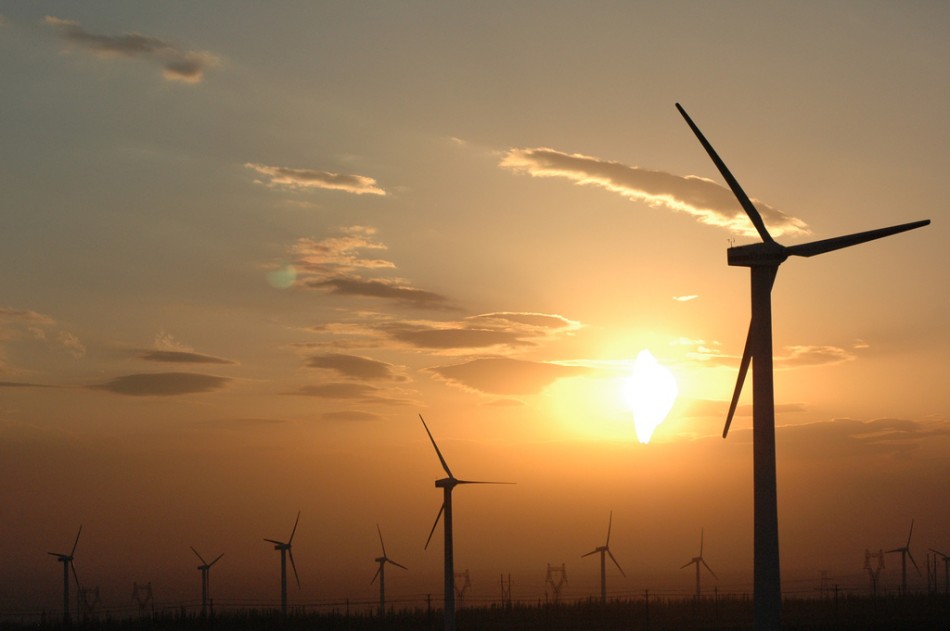 VANCOUVER, B.C. / Troy Media/ – Some Canadian environmental groups claim the world is making a dramatic move toward carbon-free energy sources. The implication is that Canada – one of the world’s largest producers of oil and natural gas – should quickly abandon the fossil fuel economy and embrace renewable energy as the only pathway to a prosperous future.
VANCOUVER, B.C. / Troy Media/ – Some Canadian environmental groups claim the world is making a dramatic move toward carbon-free energy sources. The implication is that Canada – one of the world’s largest producers of oil and natural gas – should quickly abandon the fossil fuel economy and embrace renewable energy as the only pathway to a prosperous future.
Important shifts in energy production and consumption patterns are undoubtedly underway. However, the timing of any global energy revolution is likely to be considerably slower than many believe. Rising world energy demand, and the tens of trillions of dollars of embedded capital that underpin current energy production and consumption systems, are among the factors that stand in the way of rapid change.
That said, there is evidence of an ongoing, incremental transition away from fossil fuels as a primary energy source, in favour of lower- or no-carbon forms of energy. Natural gas and renewables are expected to account for growing proportions of the world’s energy supply, while the shares of oil and coal will decline. However, because the global demand for energy is increasing and natural gas use is projected to roughly double by 2040, this does not necessarily equate to an absolute reduction in the quantity of fossil fuels produced and consumed globally.
The latest projections from the International Energy Agency (IEA) and the United States Energy Information Administration (EIA) paint a broadly similar picture of the energy landscape to 2040:
Global primary energy demand continues to increase, entirely because of growing use in the emerging economies of Asia, Latin America and Africa. In the IEA’s baseline forecast, overall world energy demand rises by one-third to 2040, while electricity consumption soars by 70 per cent.
On the supply side, by the late 2030s the world energy system is expected to consist of four roughly equal-sized components: oil, natural gas, coal, and low- or no-carbon sources. Renewables will occupy a progressively larger place in the mix. But the IEA estimates that even in 2035, fossil fuels will still satisfy at least 70 per cent of the world’s energy needs. Global oil use grows by 15 per cent to 2040.
A fundamental transformation takes place in the regional distribution of energy use. Primary energy demand is flat-lining or falling in most of the advanced economies, while consumption marches higher in the emerging economies. By 2035, China eclipses the United States as the largest oil-consuming country.
Unconventional oil and gas production has skyrocketed in the past several years, expanding the global supply of hydrocarbons – and putting downward pressure on market prices. U.S. unconventional oil output went from essentially zero in 2007 to almost four million barrels per day by 2014, undercutting the market for traditional oil exporters and converting America into the world’s leading oil producer. Natural gas output has also risen sharply in the U.S. and some other regions, based on new extraction technologies and the growth of international trade in liquefied natural gas (LNG).
Often overlooked is that if technological innovation and the growth of supply cause the prices for oil and natural gas to remain depressed, as seems likely, this should stimulate demand, offsetting some of the efforts to reduce carbon-based energy consumption. The prospect of lower-for-longer oil and natural gas prices also complicates the economics surrounding other sources of energy, such as nuclear and biomass. Slumping prices for oil and thermal coal have already encouraged greater use of these fuels in parts of Europe and some emerging economies. And since 2014, lower gasoline prices have boosted U.S. fuel consumption, as more Americans purchase SUVs and trucks and increase the mileage put on their vehicles.
Over time, technology offers the promise of a smaller carbon footprint. Government policies to put a price on carbon emissions, improve energy efficiency and stimulate fuel switching can also help accelerate the pace of change. But if global supply and demand projections from the IEA and the U.S. government are even approximately accurate, it is misleading to speak of a quick energy transition – certainly if that term is meant to signify a near-wholesale replacement of fossil fuels within the short span of two to three decades.
It makes more sense to think of an energy future in which more fuel switching occurs and an incrementally larger share of global demand is met through renewables and other lower-carbon energy sources.
Jock Finlayson is executive vice-president of the Business Council of British Columbia.